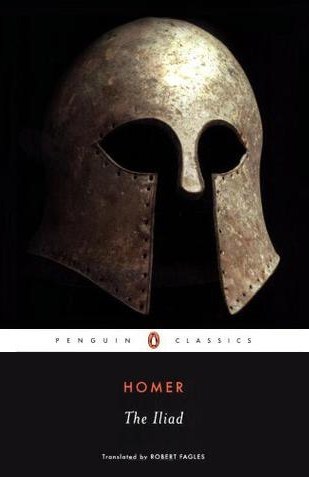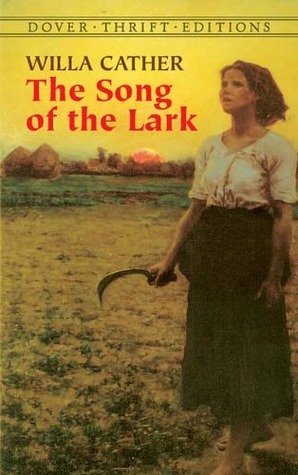
4 stars
First Sentence: Rage—Goddess, sing the rage of Peleus’ son Achilles,
murderous, doomed, that cost the Achaeans countless losses,
hurling down to the House of Death so many sturdy souls,
great fighters’ souls, but made their bodies carrion,
feasts for the dogs and birds,
and the will of Zeus was moving toward its end.
Thoughts: I have been remiss in my Classical Nerdity. I’ve read The Odyssey (many times) and The Aeneid (a couple of times) but never The Iliad. Oh, I knew about it through cultural osmosis
but I’ve never actually read it to see what else happened.
What else happened is a whole lotta fightin’ and dyin’. It’s not a glorious picture of war. Sure, everyone claims their fighting for honor and all that but a lot of men die extremely brutal deaths described in graphic details. Lots of entrails falling into the dust and brains splattered on the inside of helmets and suchlike. I guess that’s what the ancient Greeks were into before they got into the philosophy business.
Despite all the blood and other things best kept inside a human body, it’s actually quite a thrilling tale. We know the Greeks are going to win in the end, but the advantage switches between them and the Trojans several times which keeps things interesting. This is mainly due to the gods interfering with human affairs.
The gods are a big presence in the war, which is understandable because it started when Paris ticked off two goddesses. They get personally involved with the battles: Aphrodite’s pulling Trojans off the field whenever they’re in danger of getting killed, Apollo’s shooting whoever he can find for the sheer love of archery, Athena’s pulling Achilles’ hair to keep him from fighting his own people. At one point Hera seduces Zeus to distract him from the battlefield until the Greeks can gain an advantage. They don’t stop their antics until Achilles finally finds a ladder long enough to get over himself and rejoin the battle.
And speaking of Achilles, he’s kind of a brat. Yeah, he’s a great warrior and all but as a person he kind of sucks. He goes into a powerful sulk because Agamemnon takes the woman he won in battle because Agamemnon’s war-prize woman had to go back to her father, then he stays there for pretty much the whole book. He only comes out in the last few chapters after his friend Patroclus dressed up in his armor and got killed. Not only that, Hector took the armor off Patroclus so now Achilles has to get his goddess mother to ask Hephaestus to make him some new armor before he can fight. But once he gets a sword in his hand, he’s unstoppable. For now.
As you can see, the only thing Achilles liked more than Patroclus was holding a grudge. I don’t think he ever really forgave Agamemnon, but at least he was willing to put his feelings aside for five minutes to work together for the common cause. And the whole thing with dragging Hector’s body around Patroclus’ grave was nothing more than a temper tantrum. You’d think he’d catch on the gods wanted him to give the body back to the Trojans what with the no damage or decay after two weeks, but no. Achilles is kind of dumb.
But I can put up with him because he’s going to die anyway. It was foretold early in the book that Achilles’ death will follow soon after Hector’s so we know it’s coming even though the book ends before it happens. We’ll have to wait for The Odyssey for that bit of satisfaction.








